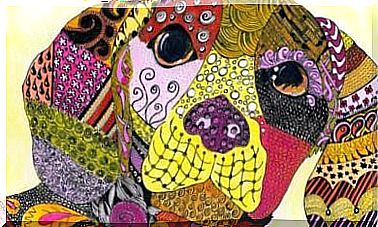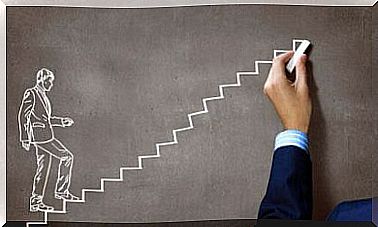Narcotic Substances: The Reason For Addiction

Drug addiction is a problem that affects an increasing number of people. However, the addiction that results from drug use may not be directly related to them, but to other causes. Today we will find that one does not become addicted to substances, rather to their effects.
To better understand this statement, it is important to analyze the results of an experiment on guinea pigs that gave us a lot of information on the subject. The experiment we will talk about dates back to the 1980s and the results were enlightening.

Narcotic substances: heroin and cocaine in mice
The experiment consisted of putting a mouse in a cage in which there were two bottles: one contained water and the other water in which cocaine or heroin had been diluted. Regardless of the guinea pig, the result did not change. The mice drank the water containing the drug and consumed it until they died. This is behavior that we also see in many drug addicts.
We must bear in mind that other variables also come into play. In this case, the mouse was alone in the cage. What if there are more of them? The researchers used a larger cage containing a small colony of mice. In it there were food, colored balls and everything you need to have fun. The result of this experiment was very illuminating.
Many mice did not drink the water that contained the drug and those that did drank it moderately. It was found that in all experiments in which a single specimen was alone, it ended up dying of an overdose. When he was in a group or in a distracting environment where he could have fun, this didn’t happen.
Isolation and the relationship with drugs
After this experiment, things became clearer. Mice that were isolated from others and who found themselves in a hostile and stimulus-free environment tended to be addictive. As a result, they did not know how to moderate their consumption of water that contained the drugs. The same conclusions hold true for people. Addiction to drugs does not have to do directly with the substances, but with the reasons why these substances are taken.
When we isolate ourselves from others, voluntarily or not, our brains start producing less myelin. This causes changes in cognitive and emotional behavior that can cause anxiety, fear or even depression. As social beings, we need to bond with others and isolation makes us feel bad.
When, for various reasons, we find ourselves isolated, we are more likely to become addicted to a substance. The reason is that drugs increase the secretion of dopamine, a substance that as we all know generates well-being.
Furthermore, the effects of drugs numb our brains, prevent us from thinking, make us feel more uninhibited and allow us, for a short period of time, to remove everything that makes us feel bad and makes us suffer. They represent a form of escape from reality.
Family history and drug use
Despite the foregoing, we must emphasize an important aspect within addictions: family history. If our parents were drug addicts, if they are in a toxic relationship or are always on the verge of divorce, it is possible that as children we felt out of place, ignored or isolated.
As we know now, this is fertile ground for us to seek refuge in drugs. This is because, as in the mouse experiment, our environment is not positive and fun. We feel like the lonely mouse locked in the cage.
Anything that can affect us emotionally can lead us to look for a different form of feeling in drugs. Furthermore, if we surround ourselves with people who use drugs because they have problems or are experiencing difficult situations, we will enter a vicious circle from which it will be very difficult to get out.

If the blame for addictions lies solely in substances, why are there people who are addicted to cell phones, video games or gambling? Addiction lies not in the substances themselves, but in how these substances make us feel and in the fact that they allow us to alienate ourselves for a while from the problems we have to solve.
In the end, what we are addicted to is the “escape valve”. Remember, though, that problems will continue to exist until you do something to address them.









